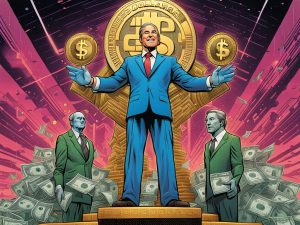Can Decentralized Finance Replace Traditional Payments?
There’s a lot of talk about DeFi (decentralized finance) these days. If one were to believe all the hype, it would seem that DeFi is a foregone conclusion – it’s not a matter of if complete decentralization will happen, but rather a matter of when. Admittedly, it does appear that things are heading in that direction. The potential, the market need and the technology are all there.
While some infer that we could make the switch right now, that’s beyond optimistic. It’s true that decentralization is dependent on blockchain technology, and you’d be hard-pressed to find people who will argue that blockchain doesn’t work. Even naysayers, when pushed, will concede that the technology itself is solid and has the potential to disrupt finance as we know it.
Consumer buy-in and trust
Our current centralized systems have been in place for a long time. They’re accepted because they’re familiar – and for the most part, they work very well. People are resistant to change, particularly when they don’t see a clear benefit.
Even when shown the upsides, many will distrust a new way of doing things, taking refuge behind an ‘if it ain’t broke, don’t fix it’ mentality. One of the chief arguments for DeFi is that it removes the middleman. But that doesn’t take into account that some people would rather pay a third party to perform a service.
We generally accept that financial professionals know more than we do about their specialty and will do a better job. More importantly, when professionals provide a service, they also take on the accompanying risk. Consumers will be even more hesitant to accept a new system if it also means losing protection and accepting liability.
Banks and financial institution acceptance
Financial organizations are understandably dragging their feet over a move to DeFi. Our existing banking model is deeply rooted in the most basic tenet of capitalism – being paid to perform a service. In this case, arranging financial transactions on behalf of the customer.
As we’ve seen, decentralization empowers users to do the work without a go-between, and consumers may not go for that. For the financial industry, however, DeFi could be devastatingly disruptive. Services that are currently integral to their business could become obsolete, meaning banks stand to lose the biggest revenue source they have.
DeFi could also potentially expose


 By
By
 By
By
 By
By
 By
By

 By
By